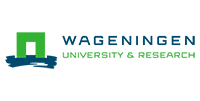The world is moving from a linear economy of make-use-dispose to a more sustainable circular one. In this new world, it’s critical to determine if alternative (biobased) resources have the potential to become truly sustainable and economically-viable sources for materials and energy, as well as food production. A company that wants to succeed in this industry must be prepared for the challenges and opportunities ahead. This MicroMasters program is intended for those currently working in biobased industries, industries that are transitioning to be more biobased, or non-profit and governmental institutions.
Read more
The world is moving from a linear economy of make-use-dispose to a more sustainable circular one. In this new world, it’s critical to determine if alternative (biobased) resources have the potential to become truly sustainable and economically-viable sources for materials and energy, as well as food production. A company that wants to succeed in this industry must be prepared for the challenges and opportunities ahead. This MicroMasters program is intended for those currently working in biobased industries, industries that are transitioning to be more biobased, or non-profit and governmental institutions.
The world is moving from a linear economy of make-use-dispose to a more sustainable circular one. In this new world, it’s critical to determine if alternative (biobased) resources have the potential to become truly sustainable and economically-viable sources for materials and energy, as well as food production. A company that wants to succeed in this industry must be prepared for the challenges and opportunities ahead. This MicroMasters program is intended for those currently working in biobased industries, industries that are transitioning to be more biobased, or non-profit and governmental institutions.
In addition to a brief introduction of the technological aspects related to biobased materials and their conversion, the program will focus on the business and economic aspects of the biobased economy. The program emphasizes a systems approach and the various associated tools and methods (e.g. life cycle assessment and agent-based modeling).
Completion of this MicroMasters program in Business and Economics for a Circular Economy will provide you with knowledge and tools to analyze the business and economics sides of the switch from fossil to renewable, biobased resources. Upon earning the program certificate, learners will be able to contribute substantially to managerial decision-making, as well as policy development.
Job Outlook
- This program is intended for those currently working in biobased industries, industries that are transitioning to the biobased economy, or non-profit and governmental institutions
- Careers in industries such as: (bio)chemical industry, agrifood water companies, energy producers, logistics, and related governmental and non-governmental organizations
- Exciting career opportunities for traditionally and newly trained: (Bio)chemical engineers, process engineers, supply chain managers, product managers, entrepreneurs, consultants and business developers in a biobased business
- Research scientist, Microbiologist, Bioprocess specialist
- The US biobased products Industry Contributes $369 Billion and 4 Million Jobs to American economy
- EU employment in the Biobased sector accounts for 13.8 million jobs
What You'll Learn
- Understand the basics of biobased materials and their conversion to useful products and services
- Understand and evaluate technological, business, societal, and economic consequences in the production of biobased products
- Judge new innovations on their sustainability and business merits
- Understand the role biofuel policies play in a biobased economy and how they impact markets
- Apply the circular economy principles to a process or product chain
What's inside
Four courses
From Fossil Resources to Biomass: A Chemistry Perspective
(120 hours)
From Fossil Resources to Biomass: A Chemistry Perspective
(120 hours)
Circular Economy: An Interdisciplinary Approach
(120 hours)
Circular Economy: An Interdisciplinary Approach
(120 hours)
Economics and Policies in a Biobased Economy
(64 hours)
Economics and Policies in a Biobased Economy
(64 hours)
Capstone Economics and Policies for a Circular Economy
(140 hours)
Capstone Economics and Policies for a Circular Economy
(140 hours)Save this collection
OpenCourser helps millions of learners each year. People visit us to learn workspace skills, ace their exams, and nurture their curiosity.
Our extensive catalog contains over 50,000 courses and twice as many books. Browse by search, by topic, or even by career interests. We'll match you to the right resources quickly.
Find this site helpful? Tell a friend about us.
We're supported by our community of learners. When you purchase or subscribe to courses and programs or purchase books, we may earn a commission from our partners.
Your purchases help us maintain our catalog and keep our servers humming without ads.
Thank you for supporting OpenCourser.



